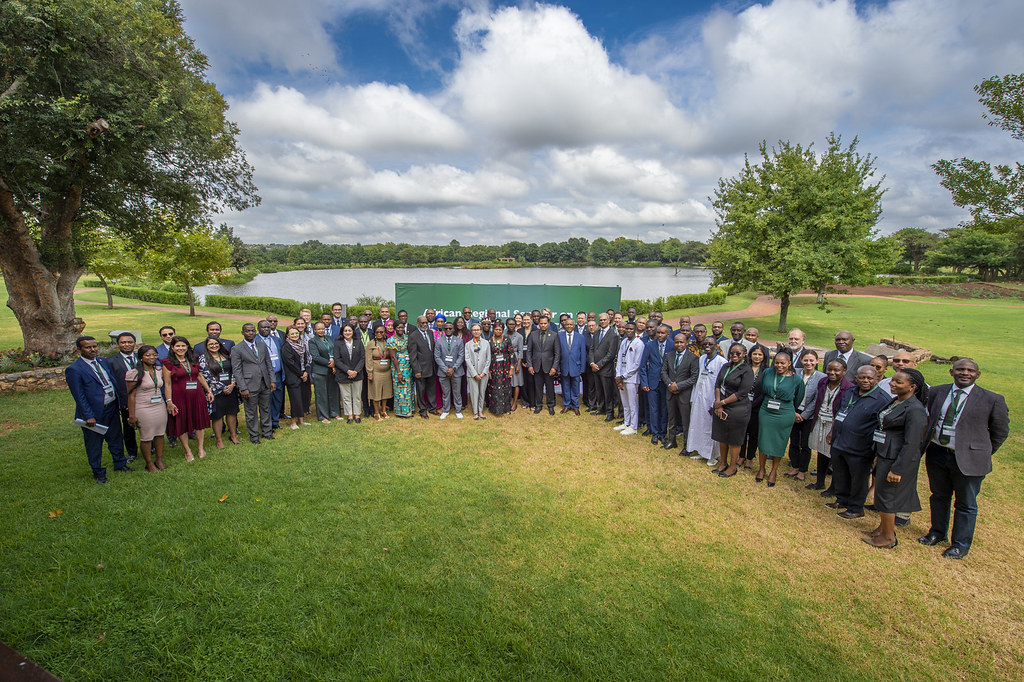Representatives from 37 African states gathered in Pretoria at the African Regional Seminar on the Universalisation of the Treaty on the Prohibition of Nuclear Weapons (TPNW) to discuss how to get every African state to sign and ratify the UN nuclear ban treaty as soon as possible.
The two day Seminar, co-hosted by South Africa’s Department of International Relations and Cooperation (DIRCO), ICAN, and the International Committee of the Red Cross, took stock of the TPNW from a regional perspective and considered the need for further progress towards universalisation of the treaty on the continent.
This week, International Relations and Cooperation Deputy Minister, Mr @alvinbotes is participating in the African Regional Seminar on the Universalisation of the Treaty on the Prohibition of Nuclear Weapons (TPNW) where he has also made remarks. pic.twitter.com/rFh8MAFbzz
— DIRCO South Africa (@DIRCO_ZA) January 30, 2023
African countries have been long-time leaders on nuclear disarmament. The continent is a nuclear-weapon-free zone under the Treaty of Pelindaba, and the TPNW enjoys strong support from all the countries in the region. So far 33 African UN member states out of 54 have signed the TPNW and 15 have ratified it.
While opening the Seminar, Deputy Minister of DIRCO, Mr Alvin Botes, highlighted South Africa’s history as one of the few states to start developing and then fully dismantle its nuclear arsenals to being an active supporter of the TPNW. “South Africa’s own experience has shown that neither the possession nor the pursuit of nuclear weapons can enhance international peace and security. The continued retention of nuclear weapons based on the perceived security interests of some states comes at the expense of the rest of humanity.” He also called on all African states “to sign and ratify the TPNW at the earliest possible opportunity and thus reassert Africa’s leadership in nuclear disarmament and contributing to international peace and security.”
Jules Amoti, Head of ICRC Regional Delegation in Pretoria, reminded participants that since 1945, the International Red Cross and Red Crescent Movement has been calling for the prohibition and elimination of nuclear weapons, based on the catastrophic humanitarian consequences any use of nuclear weapons would have and of the immense risks their continued existence entails. He further called for the complete elimination of nuclear weapons as an urgent humanitarian imperative.
ICAN’s Executive Director Beatrice Fihn also highlighted this leadership during her opening speech:“African states are rightly proud of the role they played in the TPNW’s negotiation and adoption. Support for the treaty in this region is universal, even if much work remains to be done to bring all states on board as parties,” calling on the 21 states that had not yet done so to sign and ratify the treaty. She also celebrated African civil society for their tireless efforts to raise public awareness of the TPNW and promote its universalisation.
United Nations High Representative for Disarmament Affairs Izumi Nakamitsu addressed delegates, highlighting Africa's role in global nuclear disarmament efforts.
African Union Commissioner for Political Affairs, Peace and Security, Ambassador Bankole, sent a video message recalling the long history of Africa's commitment to nuclear disarmament and noting that Africa continues to play a pivotal role in the process of the TPNW. AFCONE’s Executive Secretary, Enobot Agboraw, highlighted that the TPNW shares the common aim of the Treaty of Pelindaba. AFCONE recognises the TPNW as reinforcing the global disarmament and non-proliferation regime and has called upon African States to support the universalisation and implementation.
A number of ICAN partner organisations are represented at the meeting, and ICAN campaigners have been delivering presentations about the TPNW’s status, and campaign activities throughout Africa, as well as engaging with representatives of the countries that have yet to sign the treaty to make it a priority.
We're in Pretoria🇿🇦! We're meeting w/ some of our amazing African partners to discuss how to promote the #nuclearban in the region and get more countries on board.
— ICAN (@nuclearban) January 29, 2023
🤩We're excited to continue Africa's nuclear disarmament leadership with our partners, old and new. pic.twitter.com/ZetyQxThq8
Download the brochure "Universalising the TPNW in Africa" with analysis and status per country here.
Read about the “Implications for Africa of use of nuclear weapons” here.
Read the Summary of the Seminar in English: here , and in French, here.
View the photo gallery of the Seminar here.










